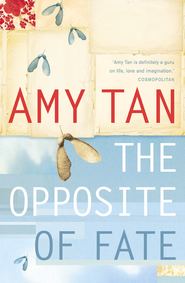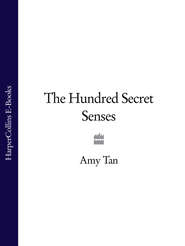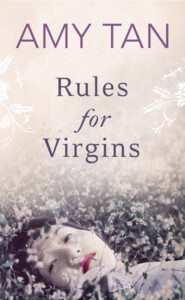По всем вопросам обращайтесь на: info@litportal.ru
(©) 2003-2024.
✖
Saving Fish From Drowning
Автор
Год написания книги
2018
Настройки чтения
Размер шрифта
Высота строк
Поля
The beers arrived, somber toasts were called out:
“To better times ahead.”
“Much better.”
Dwight immediately suggested they vote in democratic fashion whether to leave Lijiang the next day so they might get an earlier start on Burma. When he called for the yea votes, the only holdouts were Bennie, Vera, and Esmé.
Bennie was understandably concerned about an early departure. If they left early, he would be the one scrambling to patch in a new itinerary. A day in the border town of Ruili and then three extra days in Burma—what would they do? But he said nothing in casting his nay, not wishing to come across as inadequate. He should have realized that the democratic process has no place on travel tours. Once you are a tour leader, absolute rule is the only way to go.
Vera tried to exercise her executive veto. She was used to working in an organization in which she was the top boss. As a born leader, she demanded consensus, and through her unilateral decisions, and her famous eye-locking gaze, she attained it. But here in China she was one of the masses. When the votes were called for, she appealed to the group’s rationality. “Fiddle-dee-dee. I don’t believe for a second that the chief has the clout to bar us from other places. Think about it. Is he able to get on the Internet and e-mail his cronies in a hundred places? Of course not.”
“He had a cell phone,” Moff reminded her.
“I doubt he’s going to waste his precious cell phone minutes to complain about us. He was just spouting off—not that he didn’t have every right to be infuriated.” She cocked one eye and looked toward Harry, Dwight, Moff, and Rupert.
She then switched to sentimentality. “As you all recall, this tour was lovingly designed by my dear friend Bibi Chen, carefully put together as an educational and inspirational journey. If we leave now like scared little mice, we will miss out on some of the greatest adventures of our lives. We wouldn’t get to feel the spray of the magnificent waterfalls at the bottom of Tiger Leaping Gorge.…”
Esmé’s mouth rounded. They were supposed to go there?
“We would be forgoing a ride on a horse with Tibetan nationals in Yak Meadow.…”
That caught Roxanne’s and Heidi’s attention; they had each owned a pony when they were little girls.
Vera went on: “When in this lifetime will you have another chance to see an alpine meadow at seventeen thousand feet? Extremely rare.” She nodded solemnly in agreement with herself. “As are those murals of Guan Yin in the sixteenth-century temple …”
Poor Vera, she almost had them convinced, until she mentioned the murals. Goddesses may have been Vera’s niche in art history, but the mention of Guan Yin made others twitch with anxiety. Another temple? No, no more temples, please. Vera poked at the schedule, which she held up as if it were the Declaration of Independence. “This is what I signed up for. This is what I paid for. This is what I intend to do. I vote nay and I urge the rest of you to reconsider.” She sat down.
Esmé also voted nay, with a slightly lifted hand.
Vera gestured to Esmé to get everybody’s attention. “Another nay.”
When asked to explain her vote, Esmé shrugged. She couldn’t say. The truth was, she had fallen tragically in love. The Shih Tzu puppy had grown weak. When it tried to walk, it stumbled and fell. It would not eat the offerings of Chinese food given by the beauties. Esmé had also noted a lump protruding from its belly. The pup’s caretakers seemed unconcerned by its worsening condition. The lump, they said, was nothing, and one of them pointed to her own chin to suggest that the problem was no more serious than a pimple. “No worries,” they assured Esmé, thinking she was bargaining them down. “You pay less money. One hundred kwai okay.”
“You don’t understand. I can’t take the puppy. I’m traveling.”
“Take, take,” they countered. “Eighty kwai.”
Now, during the vote, Esmé could only sit grimly, chest tight to keep from crying. She could not explain any of this, especially not in front of Rupert, who rolled his eyes and groaned whenever someone referred to them collectively as “the two kids.” He never said anything to her, even when forced to sit next to her, just kept his nose buried in his paperback. Besides, who among these grown-ups cared if a puppy died? “It’s only a dog,” they would say. “Some people have it even worse.” She had heard that excuse so many times it made her puke. They weren’t really concerned about people, just their stupid trip, whether they would get their money’s worth in this dumb country or that dumb country. She couldn’t talk to her mother about any of this. Her mother still called her “Wawa,” a Chinese nickname for “baby.” Wawa, the sound of a crying doll. She hated being called that. “Wawa, what color scarf should I wear?” her mother had said in a girly voice that morning. “Wawa, does my tummy stick out?” “Do you think I look better, Wawa, with my hair up or down?” She was the wawa, so goo-goo stupid over that hairy-armed Hahr-ry Bailley. Couldn’t she see what a big phony he was?
Dwight asked if anyone had anything to add before they officially closed the vote. I was yelling as loudly as I could. Stop! Stop! How can you possibly leave China early? It was utterly mad. Had they known I was there, I could have shown them why it was ridiculous to even think of leaving. I had planned the itinerary carefully, explicitly, so that they might have a taste of the finest, so they could be like “dragonflies skimming the waters.” Now they wouldn’t even touch the surface.
The gnarled pine, I would have said, touch it. That is China. Horticulturalists from around the world have come to study it. Yet no one has ever been able to explain why it grows like a corkscrew, just as no one can adequately explain China. But like that tree, there it is, old, resilient, and oddly magnificent. Within that tree are the elements in nature that have inspired Chinese artists for centuries: gesture over geometry, subtlety over symmetry, constant flow over static form.
And the temples, walk in and touch them. That is China. Don’t merely stare at those murals and statues. Fly up to the crossbeams, get down on your hands and knees, and press your head to the floor tiles. Hide behind that pillar and come eye to eye with its flecks of paint. Imagine that you are an interior decorator who is a thousand years in age. Start with a bit of Tibetan Buddhism, add a smidgen of Indian Buddhism, a dab of Han Buddhism, plus a dash each of animism and Taoism. A hodgepodge, you say? No, what is in those temples is an amalgam that is pure Chinese, a lovely shabby elegance, a glorious messy motley that makes China infinitely intriguing. Nothing is ever completely thrown away and replaced. If one period of influence falls out of favor, it is patched over. The old views still exist, one chipped layer beneath, ready to pop through with the slightest abrasion.
That is the Chinese aesthetic and also its spirit. Those are the traces that have affected all who have traversed along China’s roads. But if you leave too soon, those subtleties will be lost on you. You will see only what the brochures promise you will see, the newly painted palaces. You will enter Burma thinking that when you cross the border, you leave China behind. And you could not be more wrong. You will still see the traces of tribal tenacity, the contradictory streaks of obedience and rebellion, not to mention the curses and charms.
But it was decided. “Nine votes yea, three votes nay,” Dwight announced. “Let’s raise another toast: To Burma!”
DINNER WAS SERVED, “A Taste of Winter Delicacies,” with dishes I had sampled on a previous tour and selected as a sensual experience for the palate. Unfortunately, the restaurant owner made a few substitutions, since I was not there to make any objections.
Wendy was the first to admit that the roadside eatery that afternoon had been “kind of a mistake.” If only she knew how huge. Nonetheless, I was greatly pleased to hear this admission come from her lips. A chastened group was a more honest one. And they raved about the fare I had chosen, or did until they encountered what the cook called “surprises” he had thrown in for free.
One was a roasted root with a crunchiness that the chef claimed the tourists would find as tasty and addictive as their American chips and English crisps. The roasted roots, however, had the unappetizing appearance of large fried larvae, also a regional favorite. But once the travelers were persuaded to try one, they devoured the snappy little appetizer with gusto, as they did a later dish, presented as the second surprise, which also resembled larva, and was. Then came another crunchy appetizer called “dragonfly,” which they took to be poetic license and was not. “This one has more of a buttery flavor,” Bennie said.
The third surprise was a spicy bean curd.
“I’ve eaten ma-po tofu all my life,” Marlena said. “But this one tastes strange. I’m not quite sure I like it.”
“It’s almost lemony, and with a strong bite,” Harry said.
“I don’t care for it.” Vera pushed her portion off to the side.
“It’s not bad,” Dwight said. “Grows on you, actually.” He took seconds.
What they tasted was not the chili substitute often found in American-made Sichuan tofu. The Lijiang version was made of the berrylike pods of the prickly ash. The zing in the mouth derives from the numbing quality that the berries have on the mucosa. And the particular variety of the genus Zanthoxylum that my friends were eating was not only from Sichuan but also of the Himalayan region, where people eat it like jelly beans. It tends to have more heat factor, ma-ness, and also to cause an almost anesthesia-like paralysis of the gut, especially in those who are delicately inclined. That would be Dwight, I might add.
THE NEXT DAY, when the group assembled for breakfast, Bennie had an announcement: “By nothing short of a miracle, Miss Rong, as a final courtesy, was able to book flights for us today so that we can leave as soon as possible.” In a few hours, they would leave for Lijiang airport and fly to Mangshi, which was only a couple of hours’ drive from the Burma border. As Bennie knew, palm-greasing helps to speed things along. The night before, after the group had voted to leave Lijiang, he rang up Miss Rong and said he would give her two hundred U.S. dollars of his own money to use as she saw fit, no questions asked, if only she could help him out of this predicament. She in turn gave away a portion of that to the various expediters connected with hotels, airlines, and the office of tourism, who, in the age-old custom of guanxi-giving, showed their appreciation by granting almost a full refund on the much-shortened visit to Lijiang.
At ten in the morning, they boarded the flight, and as they ascended, so did their moods. They had escaped their troubles with nothing more than a few mosquito bites and the pinch of several thousand kwai.
Their new guide, Miss Kong, was there to meet them at the gate in Mangshi. She was holding a sign: “Welcome Bibi Chen Group.” I was delighted to see this, but it certainly took my friends aback. Bennie quickly introduced himself as the tour leader taking my place.
“Oh, Miss Bibi is not able to come?” Miss Kong inquired.
“Not able,” Bennie confirmed, and hoped the others had not heard this exchange. If the tourism office here was unaware that the original organizer of this trip was dead, what else had they neglected to note?
The guide faced the group: “My name is Kong Xiang-lu. You may call me Xiao Kong or Miss Kong,” she said. “Or if you prefer, my American nickname is Lulu. Again, nickname is Lulu. Can you say this?” She paused to hear the correct answer.
“Lulu,” everyone mumbled.
“Sorry?” Lulu cupped her ear.
“Lulu!” they filled in with more enthusiasm.
“Very good. When you need something, you just shout Lulu.” She said it again, in a singing voice: “Luuu-lu!”
Privately, as they walked toward the bus, Lulu told Bennie, “I saw report of your difficulties at Stone Bell Temple.”
Bennie became flustered. “We didn’t mean—that is, we had no idea …”
She held up her hand like the Buddha asking for meditative silence. “No idea, no worries.” Bennie noted that everyone in China who spoke any English was saying that phrase, “No worries.” Some Aussies must have come through, all of them solicitously murmuring “No worries” at every turn. Lost your luggage? No worries! Your room’s crawling with fleas? No worries!
Bennie wanted to believe that Lulu’s declaration of “No worries” was genuine, that she had solved all their problems. He had been hoping for a sign that their luck had turned, and by the minute he felt she was presenting it. She offered a clear plan, knew all the routines, and could speak the same dialect as the driver.
I, too, thought she was an ideal guide. She had an aura of assurance matched by competence. This is the best combination, much better than nervousness and incompetence, as in the last guide. The worst, I think, is complete confidence matched by complete incompetence. I have experienced it all too often, not just in tour guides, but in marketing consultants and art experts at auction houses. And you find it in plenty of world leaders. Yes, and they all lead you to the same place, trouble.
For Bennie, Lulu’s no-worries and no-nonsense demeanor was as good as two prescription sedatives. Suddenly, devising a new schedule did not seem overwhelming. Her English was understandable, and that alone put her legions ahead of Miss Rong. Poor Miss Rong. He still felt guilty about that. Oh, well. In addition to being fluent in Mandarin, Lulu claimed to speak Jingpo, Dai, Cantonese, Shanghainese, Japanese, and Burmese. “Meine Deutsche, ach,” she went on in a self-deprecating manner full of good humor and mistakes, “ist nicht sehr gute.” Her hair was cut into a short flip. Her glasses were modern, small cat’s-eye frames with a hip retro fifties look. She wore a tan corduroy jacket, drab olive slacks, and a black turtleneck. She certainly appeared to be competent. She could have been a tour guide in Maine or Munich.










